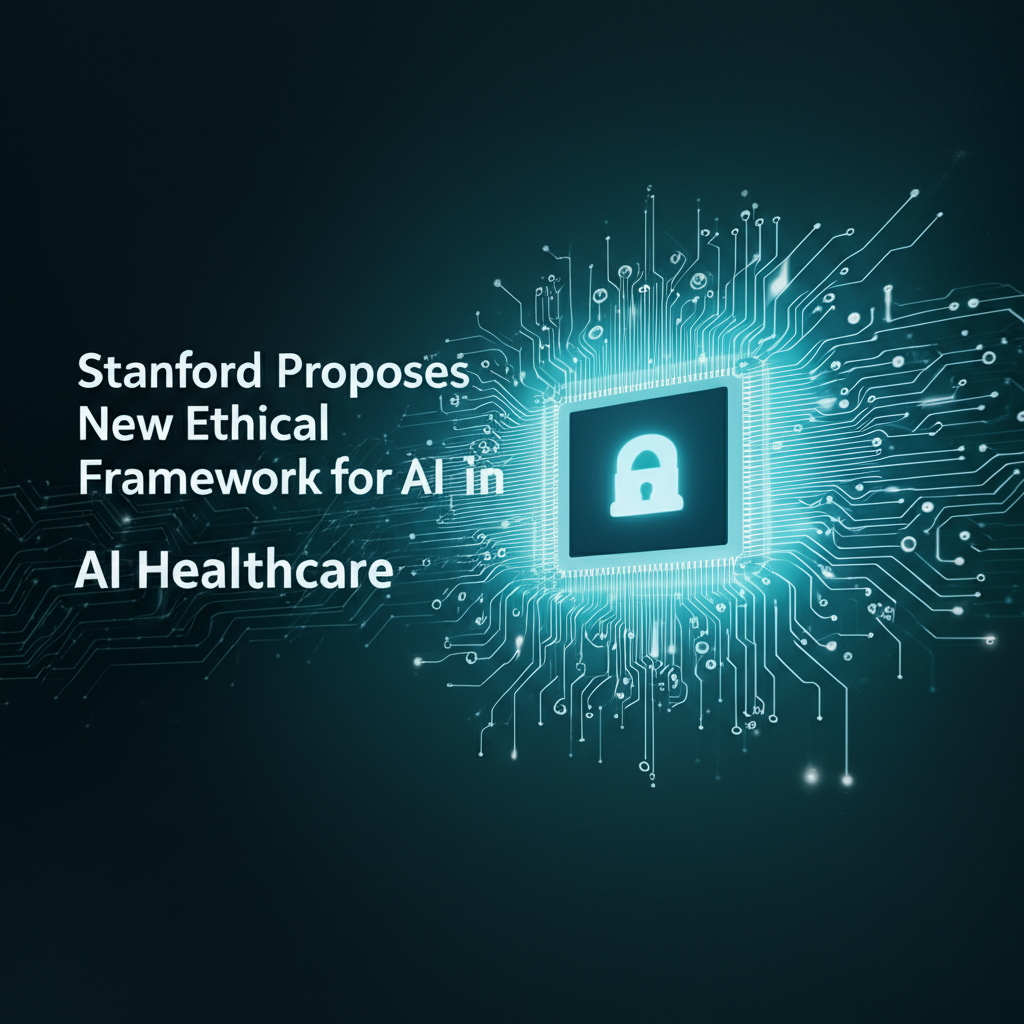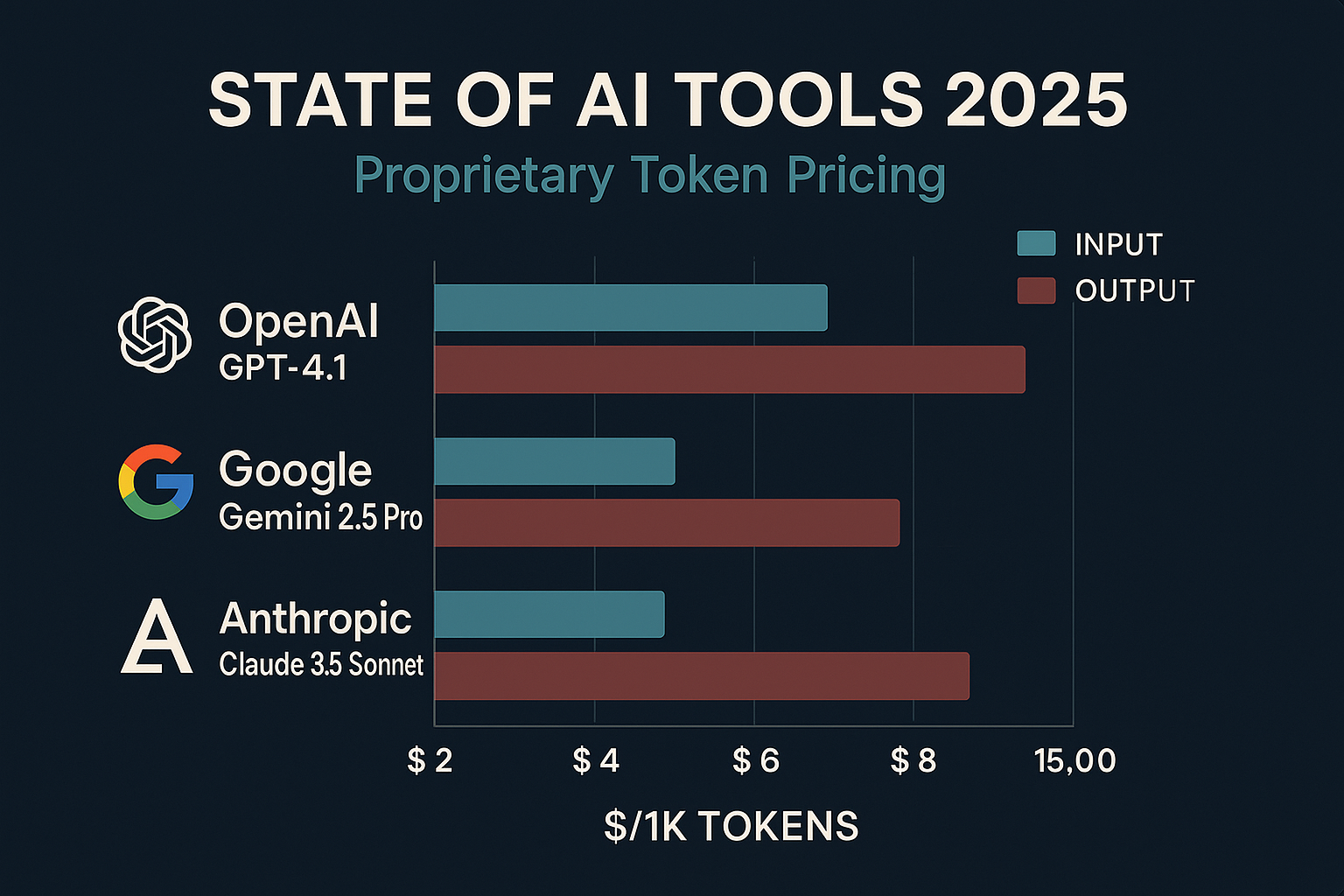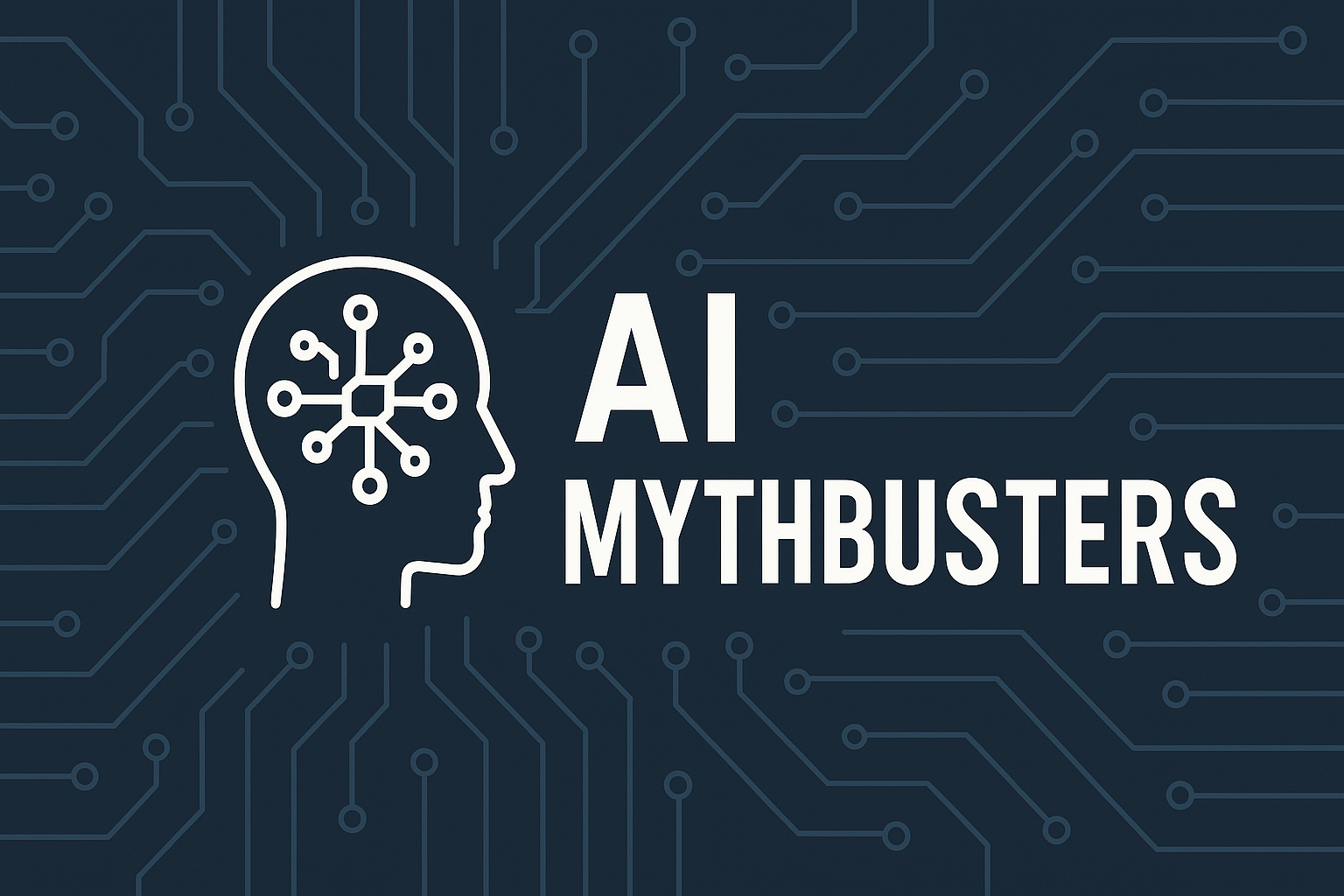Stanford's Ethical AI Framework: A Guide to Responsible Healthcare Innovation

Introduction: The Ethical Imperative of AI in Healthcare
Artificial intelligence is rapidly transforming healthcare, offering unprecedented opportunities for improving diagnostics, treatment, and patient care. From AI-powered imaging analysis to personalized medicine and robotic surgery, the potential benefits are immense. However, the increasing reliance on AI in such a sensitive domain also raises critical ethical concerns. Issues such as algorithmic bias, data privacy, and the potential for unintended consequences demand careful consideration and proactive solutions.
It is within this context that Stanford University's new ethical framework for AI in healthcare emerges as a vital development. This framework provides much-needed guidance for navigating the complex ethical landscape of AI in healthcare, addressing crucial aspects like fairness, transparency, and accountability. Its creation underscores the growing recognition that ethical AI development is not merely a desirable goal but an absolute imperative.
This blog post aims to delve into Stanford's ethical framework, exploring its key principles, practical implications, and potential benefits for patients, developers, and investors. By understanding this framework, we can collectively work towards a future where AI empowers healthcare professionals and enhances patient outcomes in a responsible and ethical manner.
Understanding Ethical Frameworks for AI
Ethical frameworks in AI are sets of guidelines and principles designed to ensure that artificial intelligence systems are developed and deployed in a responsible and fair manner. These frameworks act as a moral compass, guiding developers, policymakers, and end-users towards creating AI that benefits society while minimizing potential harms.
The core purpose of these frameworks is to proactively address and mitigate the risks associated with AI, particularly concerning bias, privacy, and accountability. In the healthcare sector, the stakes are exceptionally high. AI algorithms are increasingly being used to assist in diagnosis, treatment planning, drug discovery, and patient monitoring. However, if these algorithms are trained on biased data, they can perpetuate and even amplify existing health disparities, leading to unfair or inaccurate medical decisions.
For example, an AI diagnostic tool trained primarily on data from one demographic group may perform poorly when applied to patients from other groups. This could result in misdiagnoses, delayed treatment, or inappropriate care for underserved populations. Similarly, AI-powered predictive models used to allocate healthcare resources could unfairly disadvantage certain communities if the underlying data reflects historical inequalities.
Therefore, transparency, accountability, and fairness are paramount. Transparency demands that the inner workings of AI algorithms are understandable and explainable, allowing clinicians and patients to understand how a particular decision was reached. Accountability necessitates clear lines of responsibility for the performance and outcomes of AI systems. If an AI system makes an error, it must be possible to identify who is responsible and how to rectify the situation. Fairness requires that AI systems treat all individuals and groups equitably, regardless of their race, ethnicity, gender, or socioeconomic status. By embracing these principles, we can harness the power of AI to improve healthcare for everyone, while safeguarding against potential harms and biases.
Stanford's Ethical Framework: A Detailed Look
Stanford University's newly proposed ethical framework for AI in healthcare offers a comprehensive roadmap for navigating the complex ethical challenges arising from the increasing integration of artificial intelligence in medical contexts. This framework isn't just a theoretical exercise; it's a practical guide designed to promote responsible innovation and build trust in AI-driven healthcare solutions. It's structured to be relevant for developers, healthcare providers, policymakers, and patients alike.
Key Principles at the Core
The framework is built upon several core ethical principles, each designed to address specific concerns related to AI in healthcare:
* Fairness: The framework emphasizes the importance of ensuring that AI algorithms do not perpetuate or exacerbate existing health disparities. It calls for rigorous testing and validation of AI models across diverse populations to identify and mitigate potential biases.
* Transparency: Promoting transparency in AI systems is central to the framework. This means making the decision-making processes of AI algorithms more understandable to healthcare professionals and patients, allowing for scrutiny and informed consent.
* Privacy: Protecting patient data is paramount. The framework provides guidelines for secure data handling, storage, and sharing, adhering to established privacy regulations like HIPAA and advocating for the use of privacy-preserving technologies.
* Accountability: The framework establishes clear lines of accountability for the development, deployment, and use of AI in healthcare. It addresses the crucial question of who is responsible when AI systems make errors or cause harm, advocating for mechanisms to investigate and remediate such incidents.
Guidelines for Stakeholders
The framework provides specific guidelines tailored to different stakeholders:
* For Developers: The framework encourages developers to adopt ethical design principles from the outset, including bias detection and mitigation techniques, explainable AI methods, and robust security protocols. It also stresses the importance of continuous monitoring and evaluation of AI systems to identify and address unintended consequences.
* For Healthcare Providers: The framework advises healthcare providers to exercise caution and critical judgment when using AI-powered tools. It emphasizes the need for ongoing training and education to understand the limitations of AI and to ensure that AI systems are used as decision-support tools, not replacements for human clinical judgment.
* For Policymakers: The framework urges policymakers to develop clear regulatory guidelines for AI in healthcare, including standards for data privacy, algorithm transparency, and accountability. It also calls for investment in research and development to promote the ethical and responsible development of AI technologies.
Addressing Bias in AI Algorithms
A significant focus of the framework is on addressing potential biases in AI algorithms. Recognizing that AI models can inadvertently perpetuate biases present in training data, the framework recommends several strategies, including:
* Data Diversity: Ensuring that training data is representative of the diverse populations that will be affected by the AI system.
* Bias Detection Tools: Utilizing tools and techniques to identify and quantify bias in AI models.
* Algorithmic Auditing: Conducting regular audits of AI algorithms to assess their fairness and accuracy across different demographic groups.
Promoting Data Privacy and Security
Data privacy and security are cornerstones of the framework. It advocates for the implementation of robust security measures to protect patient data from unauthorized access and misuse. These measures include:
* Data Encryption: Encrypting patient data both in transit and at rest.
* Access Controls: Implementing strict access controls to limit access to sensitive data to authorized personnel only.
* Data Anonymization: Employing techniques to anonymize or de-identify patient data when possible.
Ensuring Accountability
The framework tackles the complex issue of accountability in AI decision-making processes by promoting transparency and establishing clear lines of responsibility. It suggests:
* Documenting AI Decision-Making: Maintaining detailed records of how AI systems arrive at their conclusions.
* Establishing Oversight Mechanisms: Creating oversight bodies to monitor the use of AI in healthcare and investigate potential harms.
* Developing Redress Mechanisms: Providing avenues for patients and healthcare providers to seek redress if they are harmed by AI systems.
By providing a detailed roadmap for ethical AI development and deployment, Stanford's framework represents a significant step forward in ensuring that AI technologies are used to improve healthcare outcomes in a responsible and equitable manner. It underscores the importance of ongoing dialogue and collaboration among stakeholders to navigate the evolving ethical landscape of AI in healthcare.
Benefits of the Framework for Key Stakeholders
This new ethical framework offers significant benefits for all stakeholders involved in AI-driven healthcare:
For Patients: The framework fosters increased trust in AI-powered healthcare solutions. It prioritizes fairness and transparency, actively working to prevent biased diagnoses and treatment recommendations. Patients can expect a clearer understanding of how AI contributes to their medical journey, empowering them to make informed decisions in collaboration with their healthcare providers.
For Developers: This framework provides invaluable guidance for building responsible and ethical AI tools. By adhering to its principles, developers can minimize legal and reputational risks associated with biased or unfair AI systems. Furthermore, building AI with ethics in mind enhances user trust and encourages wider adoption of these potentially life-saving technologies.
For Healthcare Providers: The framework offers essential support in navigating the complex landscape of AI adoption. It provides tools and guidelines for assessing the reliability and fairness of AI systems, enabling healthcare providers to make informed decisions about which technologies to integrate into their practice. Ultimately, this leads to improved patient outcomes and a higher standard of care.
For Investors: This framework signals a growing and crucial awareness of ethical considerations within the AI healthcare space. It helps identify companies that prioritize ethical AI development, making them more attractive and sustainable investment opportunities. By focusing on companies committed to responsible AI practices, investors can contribute to a future where AI benefits all members of society without compromising ethical values.
Analysis and Comparison: Placing Stanford's Framework in Context
Stanford's ethical framework arrives in a landscape increasingly aware of the need for responsible AI in healthcare, though comprehensive, sector-specific frameworks remain relatively sparse. While organizations like the World Health Organization (WHO) and the FDA have released guidelines and principles touching upon AI ethics in health, Stanford's framework distinguishes itself by offering a more granular and actionable approach specifically tailored to the healthcare context. Many existing frameworks tend to be broader, encompassing all AI applications, whereas Stanford's delves into the nuances of patient data, clinical decision-making, and the unique vulnerabilities within the healthcare ecosystem.
Strengths of the framework include its emphasis on transparency and explainability. By advocating for AI systems that provide clear reasoning behind their outputs, the framework promotes trust and allows clinicians to critically evaluate AI-driven recommendations. Furthermore, the focus on data privacy and security aligns with growing concerns about protecting sensitive patient information in an era of increasing data breaches. The framework's attention to bias mitigation is also crucial, as it encourages developers to proactively identify and address potential sources of bias in algorithms and datasets.
However, the framework is not without its weaknesses. One potential limitation lies in the practical challenges of implementation. Translating ethical principles into concrete actions can be difficult, particularly in resource-constrained healthcare settings. For example, achieving true algorithmic transparency may require significant investment in research and development, which smaller organizations may struggle to afford. Another potential challenge is the framework's applicability across diverse healthcare contexts. Healthcare systems vary significantly across countries and even within regions, and the framework may need to be adapted to account for these differences. Additionally, the framework places a significant burden on developers and institutions to self-regulate; without clear enforcement mechanisms or regulatory oversight, adherence to the guidelines may be inconsistent.
Areas for further development could include more specific guidance on addressing algorithmic bias in specific clinical scenarios. While the framework acknowledges the importance of bias mitigation, providing concrete examples and best practices for different healthcare applications would be beneficial. Additionally, exploring the role of patient engagement and shared decision-making in the context of AI-driven healthcare could enhance the framework's focus on patient autonomy and well-being. Further elaboration on mechanisms for accountability when AI systems cause harm would also strengthen the framework.
Ultimately, Stanford's framework represents a significant step forward in the AI ethics conversation within healthcare. It moves beyond abstract principles by offering a practical guide for developers, healthcare providers, and policymakers. By emphasizing transparency, privacy, and fairness, the framework helps to build trust in AI-powered healthcare solutions and promotes responsible innovation. While challenges remain in implementation and further refinement is needed, this framework provides a valuable foundation for navigating the ethical complexities of AI in healthcare and fostering a future where AI benefits all patients.
Conclusion: Shaping an Ethical Future for AI in Healthcare
In conclusion, Stanford's proposed ethical framework offers a crucial roadmap for navigating the complex landscape of AI in healthcare. The framework underscores the critical need for transparency, fairness, and accountability in the development and deployment of these powerful technologies. By proactively addressing potential biases, safeguarding patient privacy, and establishing clear lines of responsibility, this framework paves the way for building trust and ensuring equitable access to AI-driven healthcare solutions.
The importance of ethical considerations in AI healthcare cannot be overstated. As AI systems become increasingly integrated into clinical decision-making, diagnostics, and treatment planning, it is paramount that we prioritize patient well-being and mitigate the risk of unintended consequences. A commitment to ethical AI practices is not merely a matter of compliance; it is a moral imperative that will shape the future of healthcare.
We urge developers, healthcare providers, and policymakers to embrace and actively promote these ethical AI principles. Developers should prioritize fairness and transparency in their algorithms, healthcare providers should critically evaluate AI-driven recommendations, and policymakers should establish clear regulatory guidelines to ensure responsible AI adoption. By working together, we can foster an environment where AI enhances, rather than undermines, the quality and accessibility of healthcare.
Looking ahead, ethical frameworks will play an increasingly vital role in shaping the future of AI in healthcare. As AI technologies continue to evolve, ongoing dialogue and collaboration will be essential to adapt these frameworks to emerging challenges and opportunities. The goal is to ensure that AI serves as a force for good, improving patient outcomes and promoting health equity.
To further your understanding of AI ethics and responsible AI development, we recommend exploring the following resources:
* The AI Index Report (Stanford): Provides comprehensive data and insights on AI advancements and their societal impact.
* IEEE Ethically Aligned Design: Offers a detailed framework for ethical considerations in autonomous and intelligent systems.
* Partnership on AI: A multi-stakeholder organization dedicated to responsible AI development and deployment.
* Your own institutional or organizational ethics guidelines: Consult these for specific policies and procedures related to AI ethics in your context.


